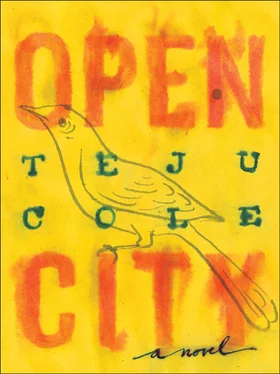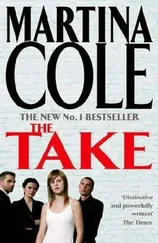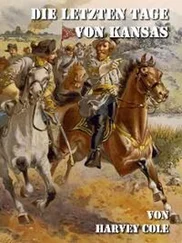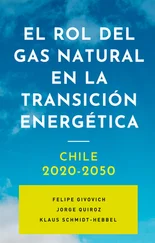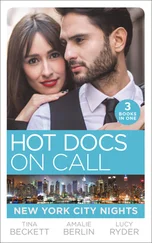I had the ulcerous sensation of too many things happening at once. What did she think I wanted from her? But I knew she had freed me from the faint hopes I had been harboring. It helped bring a concrete end to what had, in any case, ended long before. I was annoyed only at how long it had taken, and how much wasted thought had gone into it; annoyed, too, that it would surprise me at all that she’d moved on so quickly and so decisively. So my griefs interfered with each other. I put Bach’s Coffee Cantata into the stereo that afternoon and lay in bed. It was a recording by the Academy of Ancient Music. The music, rhythmic and jocose, had no entry into my mind, but I let it play on, recognizing its beauty without feeling it. Then I thought perhaps Purcell would be better, more soothing, so I put in “An Evening Hymn”: a beautiful score, for tenor and six viols, but that was too lugubrious, and I was insensible to it as well. So I lay there in silence, watching dust motes, until I decided to get up, and run an errand I had been putting off — a package I had been meaning to send — and keep the self-pity at bay.
I walked into Morningside Park. There was snow on the ground still, in dirty patches. It was a world of brown and black, gray and white. My pace was reluctant. Then I stopped: I had the distinct sensation of being watched. In a tree, I saw a hawk. Or, rather, he saw me. His predatory glare pricked the back of my neck, and I turned round to discover him, all intent, on a low branch not more than twenty feet away from where I stood. The park was empty, and the sun was ineffectual, invisible, hiding. He was a strong bird, big, in his presence an embodiment of an extreme elaboration of the evolutionary process. I wondered if he was, perhaps, kin to Pale Male, the celebrated hawk in Central Park who had nested on a Fifth Avenue building, or if, indeed, he was Pale Male himself. He regarded me less with disdain than with disinterest. We looked at each other, and looked, until, spooked, I lowered my eyes, turned around, and carefully, evenly, walked away from him, the whole while feeling those eyes boring into me.
When I came out of the park just north of Central Park North, not many people were about. There were two men in a doorway near the entrance of the post office, one of whom I had seen before. He had dirt-encrusted brown hair that fell about his face like fine ropes. His beard was bushy, flecked with white, and the odor of unwashed weeks emanated from him; his feet, bare and splayed out in front of him in his sitting position, were ashen. The second man, who was clean and much younger, and who was unfamiliar to me, was on one knee, holding the older man’s foot. When I got closer, I saw that they were talking, quietly and congenially, as though they were at a dinner table in a restaurant. They spoke Spanish, and laughed every now and again, seemingly unaware that their interaction was taking place in public, oblivious to my staring. The clean man was clipping the dirty man’s toenails. He did it with such attentiveness that I couldn’t help guessing that the man he was caring for was an older relative of his; his father, perhaps, or an uncle.
I entered the post office. It was late, almost closing time. Unable to find a customs form for my package, I joined the dishearteningly long line, but just then, one of the postal workers redivided the lines, opened a new window, and asked if anyone was sending an international package. I suddenly found myself at the head of a line. I thanked her, and moved toward the window. I told the man behind the glass, a pleasant, bald, middle-aged man, that I wanted a customs form. I filled it out with Farouq’s address. The memory of my conversations with him had convinced me to send him Kwame Anthony Appiah’s Cosmopolitanism . I sealed the envelope, and the postal worker showed me various booklets of stamps. No flags, I said, something more interesting. No, not these, and certainly not these. I finally opted for a beautiful set featuring quilts from Gee’s Bend, Alabama. He looked up at me and said, I know. And he added, after a pause, I know, my brother. Then he said, Say, brother, where are you from? ’Cause, see, I could tell you were from the Motherland. And you brothers have something that is vital, you understand me. You have something that is vital for the health of those of us raised on this side of the ocean. Let me tell you something: I am raising my daughters as Africans.
There was no one in line behind me, and the postal window was partially concealed by a column. Terry (that was the name on the ID card around his neck) finished processing my parcel, and asked if I was going to pay for it with cash or a credit card. See, brother — Julius, I said — okay, Brother Julius, the thing is, you’re a visionary. It’s the truth. I can see that in you. You’re someone who has traveled far. You’re what we call a journeyer. So let me share something with you, because I think you’ll get it. He placed his hands on the metal scale in front of him, inclined his head toward the window, and, lowering his voice to just above a whisper, began a recitation: We are the ones who received the boot. We, who are used for loot, trampled underfoot. Unconquered. We, who carry the crosses. Yes, see? Our kith and our kin used like packhorses. We of the countless horrific losses, assailed by the forces, robbed of choices, silenced voices. And still unconquered. You feel me? For four hundred and fifty years. Five centuries of tears, aeons of fears. Yet still we remain, we remain, we remain the unconquered.
He held the last line in a meaningful pause. Then he said, You know it? I shook my head. It’s one of mine, he said. I’m a poet, see. I call that one “The Unconquered.” I write these things down, and sometimes I go down to the poetry cafés. That’s my gift, you see, poetry. If you liked that, he said, listen to this one: The catalogue of pain, that comes with cocaine, is not from us. They made it, they made the stuff, they made us tough, it was they, the bringers of pain, who brought the rough times, where once all things were calm. And now what we need, you feel me? We need to seed a new balm, a new creed. From within. From our ancestors. For our children. For our future.
Again, moved by his own words, he fell into silence. Brother Julius, he said, with great feeling, you’re a visionary, keep hope alive. I think we should see some poetry together. I can see that you instinctively get it. We must be a light for this generation. This generation is in darkness, you feel me? I know you understand. Do you write, yourself? I took the card he slid under the glass. It was printed in gold ink on off-white stock. TERRENCE MCKINNEY, WRITER/PERFORMANCE POET/ACTIVIST. No, I said. I wouldn’t exactly call myself a writer. Well, drop me a line sometime, he said. We can go to the Nuyorican Poets Cafe. I’d like to talk to you. Sure thing, I said.
It was, in the circumstances, the simplest thing I could say. I made a mental note to avoid that particular post office in the future. When I came out of the building, the younger of the two Spanish-speaking men I had seen earlier had left. The bearded man who’d just had his toenails clipped sat in the golden glow of the sun, which had now come out, and the day became much warmer than I had anticipated. The light fell straight down from the corner of the building across the street. He lay there half-asleep in the pool of light, transfigured. Beside him were three empty liquor bottles. I had paid for my postage with cash, and had some change. I gave the drunk two of the three dollars in my pocket. There was a feral cat behind him, seeking shade from the sudden brightness. Gracias , the man said, stirring. When I had walked three steps beyond him, I came back again and gave him the last dollar, and he smiled at me through broken teeth. The cat struck with its paw at its own shadow in the concrete.
Читать дальше
